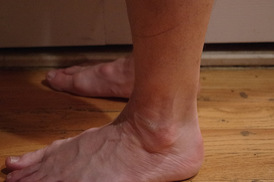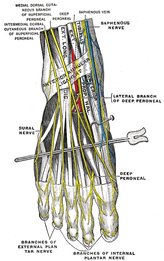- Home
- About Us
- TSPT Academy
- Online Courses
-
Resources
- Newsletter
- Business Minded Sports Physio Podcast
- Day in the Life of a Sports PT
- Residency Corner
-
Special Tests
>
-
Cervical Spine
>
- Alar Ligament Test
- Bakody's Sign
- Cervical Distraction Test
- Cervical Rotation Lateral Flexion Test
- Craniocervical Flexion Test (CCFT)
- Deep Neck Flexor Endurance Test
- Posterior-Anterior Segmental Mobility
- Segmental Mobility
- Sharp-Purser Test
- Spurling's Maneuver
- Transverse Ligament Test
- ULNT - Median
- ULNT - Radial
- ULNT - Ulnar
- Vertebral Artery Test
- Thoracic Spine >
-
Lumbar Spine/Sacroiliac Joint
>
- Active Sit-Up Test
- Alternate Gillet Test
- Crossed Straight Leg Raise Test
- Extensor Endurance Test
- FABER Test
- Fortin's Sign
- Gaenslen Test
- Gillet Test
- Gower's Sign
- Lumbar Quadrant Test
- POSH Test
- Posteroanterior Mobility
- Prone Knee Bend Test
- Prone Instability Test
- Resisted Abduction Test
- Sacral Clearing Test
- Seated Forward Flexion Test
- SIJ Compression/Distraction Test
- Slump Test
- Sphinx Test
- Spine Rotators & Multifidus Test
- Squish Test
- Standing Forward Flexion Test
- Straight Leg Raise Test
- Supine to Long Sit Test
-
Shoulder
>
- Active Compression Test
- Anterior Apprehension
- Biceps Load Test II
- Drop Arm Sign
- External Rotation Lag Sign
- Hawkins-Kennedy Impingement Sign
- Horizontal Adduction Test
- Internal Rotation Lag Sign
- Jobe Test
- Ludington's Test
- Neer Test
- Painful Arc Sign
- Pronated Load Test
- Resisted Supination External Rotation Test
- Speed's Test
- Posterior Apprehension
- Sulcus Sign
- Thoracic Outlet Tests >
- Yergason's Test
- Elbow >
- Wrist/Hand >
- Hip >
- Knee >
- Foot/Ankle >
-
Cervical Spine
>
- I want Financial Freedom
- I want Professional Growth
- I want Clinical Mastery
 I recently evaluated a patient with lateral foot/ankle pain that another PT had recently treated. The injury was previously diagnosed as a lateral ankle sprain, even though the injury had occurred over a year ago. As some of you may be aware, I wrote a similar post several months ago regarding a "chronic calf strain." In both cases, the length of time since injury should have been a major clue. Sprains and strains should recover within several weeks. Injuries and pain that persist are significant sign of pain containing a neural component. Some other subjective and objective exam findings that can help you clue in on this include: pain of a vague presentation, reproduction of pain with neural tension, and the presence of pain proximally. The patient I examined had all of these factors. The pain was located all over the lateral foot and ankle area (not a specific spot like most musculoskeletal compliants). The patient had some mild back pain and a job that requires prolonged desk work. Finally, the patient's pain was reproduced with a SLR biasing the common peroneal nerve. It should be pretty apparent that the patient wasn't simply suffering from an ankle sprain from a year ago, based solely off the subjective. Time frame from injury can be a good clue. I should point out that the patient did not report back pain, even after initial questioning. Typically, I have to repeatedly ask patients about any back pain or history of back pain. Many people consider back pain a part of normal aging and not worth reporting. This is where having a thorough and systematic evaluation can come into play. I typically advocate the Selective Functional Movement Assessment (SFMA) as it forces you to look at the whole body in examination. Significantly dysfunctional and/or painful spinal mobility can be identified here and play a role in your treatment decision. Even if the patient had denied back pain and none was found in examination, the presence of spinal mobility deficits is likely pertinent and should be addressed. -Chris Like this post? For more advance information, join the Insider Access Page!, Also, check out similar previous posts below.
0 Comments
Leave a Reply. |
Dr. Brian Schwabe's NEW Book in partner with PaleoHacks!
Learn residency-level content on our
Insider Access pages We value quality PT education & CEU's. Click the MedBridge logo below for TSPT savings!Archives
July 2019
Categories
All
|








 RSS Feed
RSS Feed